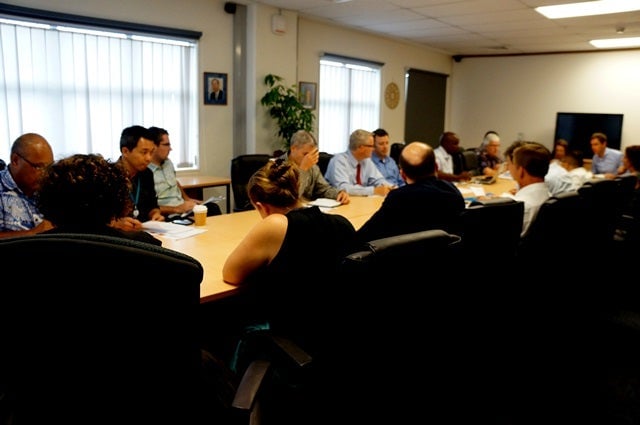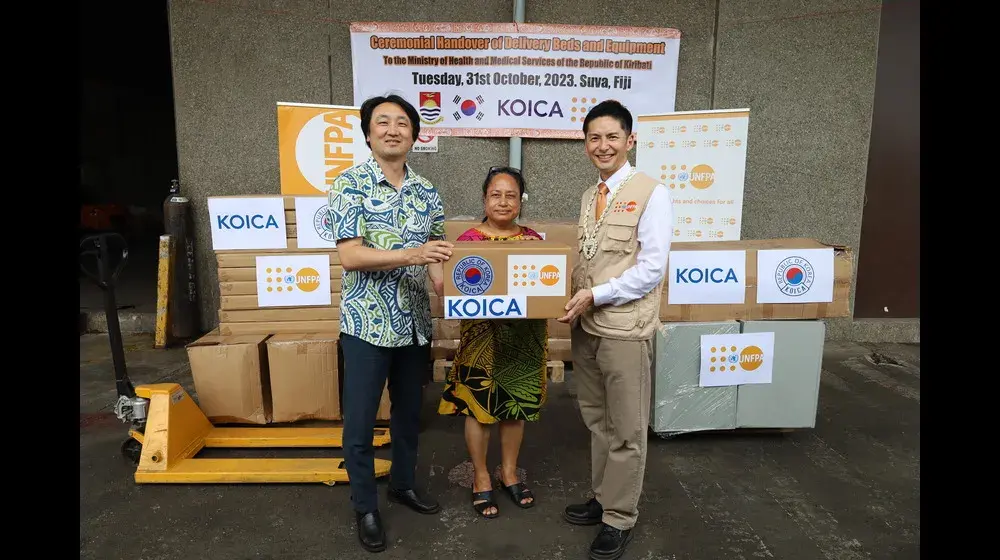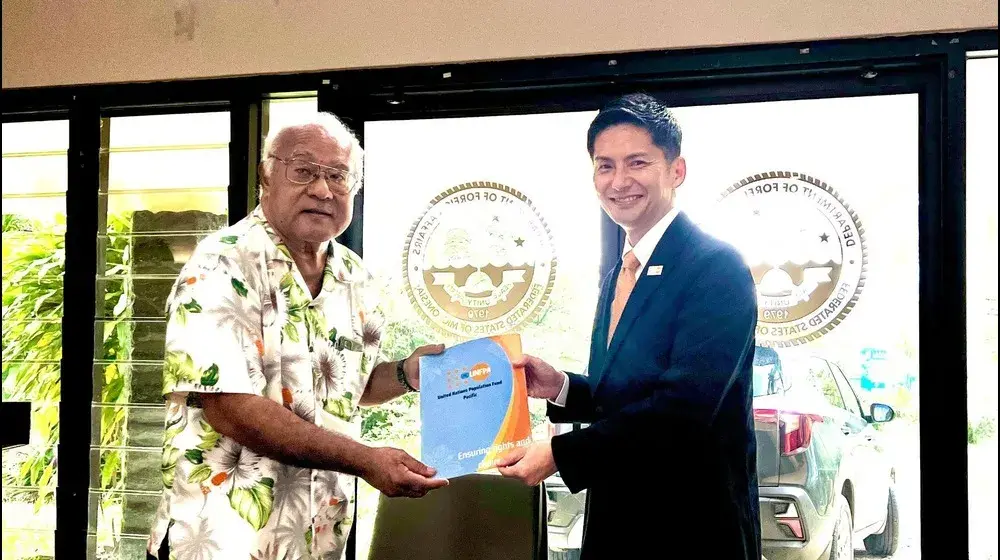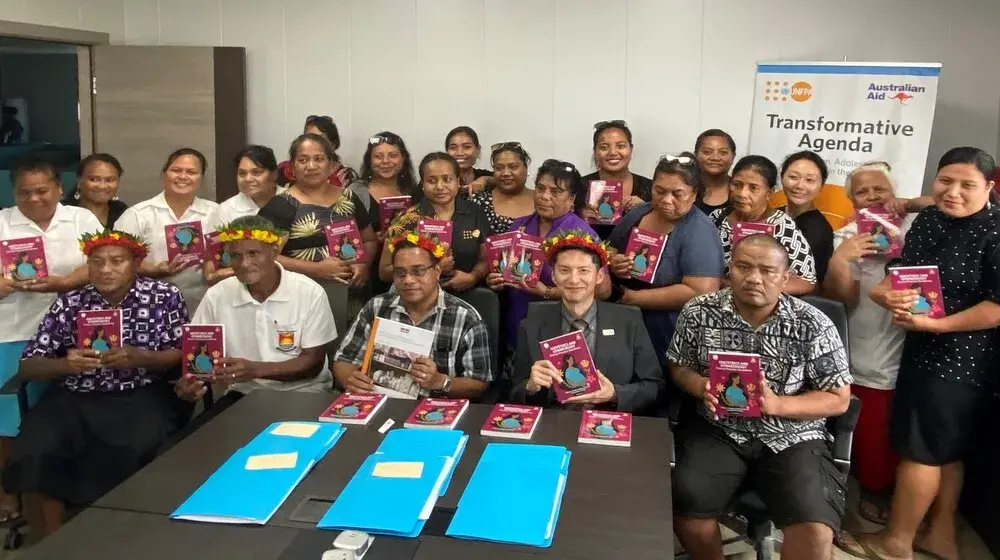THE outpouring of aid and technical support for our ni-Vanuatu wantok would give anyone renewed hope in humanity, even as we work towards the eradication of atrocities like 800 women continuing to die daily worldwide giving life, from pregnancy or childbirth complications.
The United Nations response in humanitarian situations like this is co-ordinated by the United Nations Office for the Coordination of Humanitarian Affairs (UNOCHA,) to ensure a response that is as "organised" as can be. It helps that each UN agency has a specific mandate area that in times like this, focuses its efforts on.
The need to be complementary is also so very crucial at a time that the local governance structure is expected to be highly challenged - from responding to the needs of its populace, to trying to manage an onslaught of external interventions.
We also live in an age of instantaneous information dissemination that could be more damaging than helpful, if not managed well.
In Vanuatu, the United Nations presence works out of a Joint Presence Office. The United Nations Population Fund (UNFPA) Pacific Sub-Regional Office (PSRO) has awaited guidance from UNOCHA and assessment reports from the organisation's two staff on the ground to ensure an informed and targeted response.
For now, UNFPA Pacific has committed up to 35 million vatu ($F668,000) in assistance, this is apart from the provision of essential emergency reproductive health supplies towards the United Nations Cyclone Pam recovery efforts, always in consultation with stakeholders like development partners but most importantly with the Government of Vanuatu.
UNFPA Pacific Program analyst Gideon Mael with family planning and youth sexual reproductive health specialist Claire Davies are undertaking assessments on the ground, participating in discussions on inter-agency responses and working with the Ministry of Health. Ms Davies is a VSA New Zealand (Volunteers Service Abroad) volunteer working for UNFPA.
"The Vila Central Hospital requires urgent repairs and may require longer-term reconstruction," Mr Mael said from Port Vila. "Monday (March 16) has been a day of preparations of our support to a government-led response and today (yesterday) has been more about action in ascertaining information with no power in most parts and serious damage to communication infrastructure."
The Vanuatu Humanitarian Team has confirmed 3300 evacuees so far, 37 evacuation centres have been opened in Efate, the island on which the capital, Port Vila, is located. UNFPA Pacific has pre-positioned dignity kits, radios and flashlights.
UNFPA reproductive health in emergencies kits include kits for medical response to sexual violence, clinical delivery assistance, management of miscarriage and suture of tears (cervical and vaginal) and vaginal examination.
"Our response is based on analyses and information to ensure our contribution is targeted and therefore will benefit ni-Vanuatu women and families," UNFPA Pacific Sub-Regional Office representative and director Dr Laurent Zessler said.
Based on findings of the 2013 Demographic Health Survey, UNFPA Pacific there are about 56,000 women of reproductive age of which 6700 are estimated to be pregnant. It is estimated that 100 women may experience pregnancy related complications in the next month or 900 women in the next nine months.
Findings from violence against women prevalence study in 2012 conducted in Vanuatu reported 60 per cent intimate partner violence and 48 per cent non-partner violence. Gender-based violence can be acerbated in evacuation centres and in host-family accommodation.
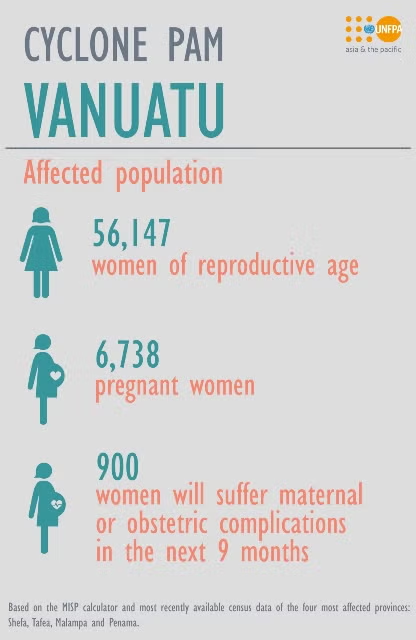
The competing interests that assail governments when attempting to respond to the needs of its populace, sexual and reproductive health needs and in particular the unique experiences of women and girls like are easily overlooked.
Past experience and studies tell us that in crisis situations, one in five women of childbearing age are likely to be pregnant and without access to reproductive health services, these women face an increased risk of life-threatening complications.
Many women also lose access to family planning, exposing them to unwanted pregnancies in perilous conditions. Women and young people also become more vulnerable to sexual violence, exploitation and HIV infection. And the hygiene needs of women and girls are often neglected.
This is why the UNFPA works closely with governments, other UN agencies, community-based organisations and other partners to ensure that reproductive health is integrated into emergency responses.
UNFPA deploys hygiene supplies, obstetric and family planning supplies, trained personnel, and other support to vulnerable populations, and works to ensure the needs of women and young people are served through both an emergency and the reconstruction phase.
Generally-speaking, UNFPA also plays a critical role in collecting data during emergencies - these assessments help guide crisis responses, enabling humanitarian organisations and affected populations to better understand how needs are evolving under rapidly changing circumstances.
UNFPA is uniquely well suited to perform this work. The fund collaborates with national statistical organizations in developing and middle-income countries, facilitating the collection, analysis, dissemination, and use of reliable data and information.
UNFPA also has a wealth of experience, from the country and regional levels to the global level, on population and development issues.
"It makes sense to ensure that human beings, people are at the core of our responses, as we address communication and or infrastructural damage - it strengthens the resilience of our people," Dr Zessler said.
"Apart from providing basic dignity kits and contributing financially where we can, UNFPA can also provide specific needs like midwives, but we only respond when we receive a request because the last thing we want to do is overwhelm co-ordination governance structures with things they do not specify."
